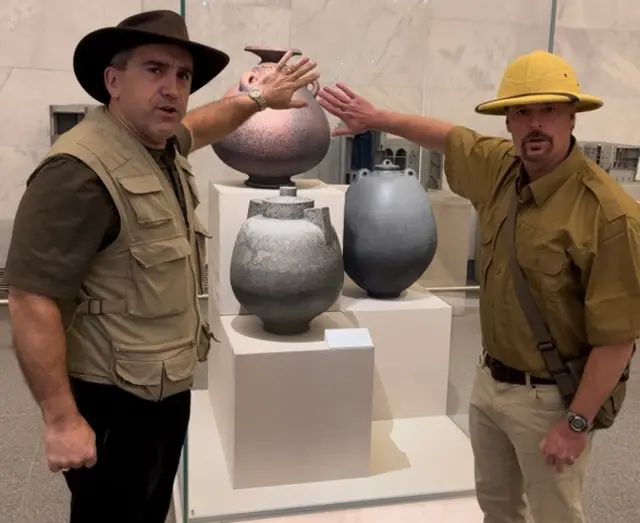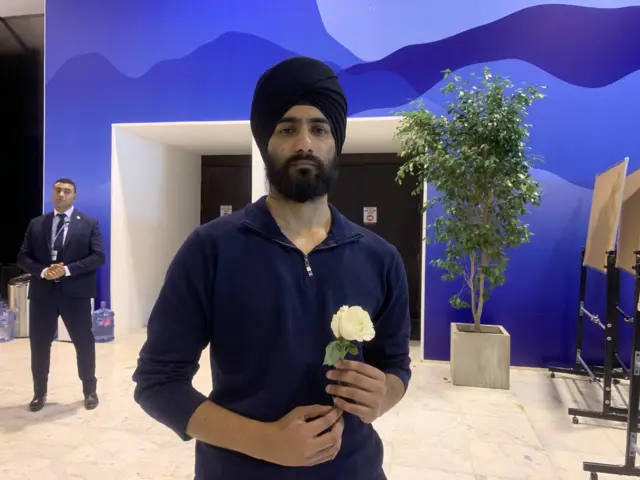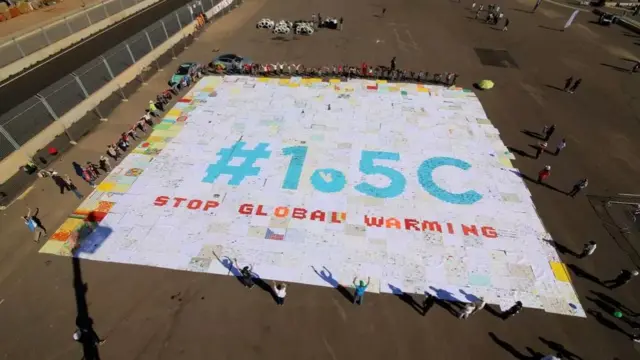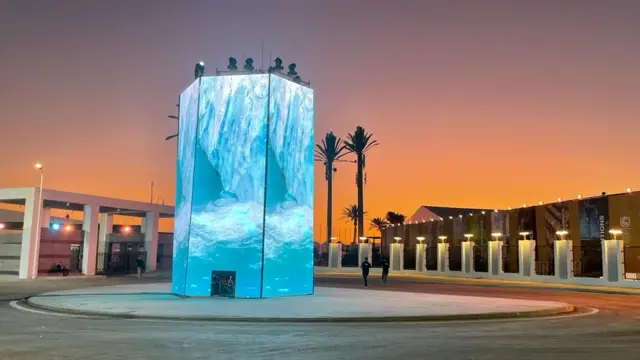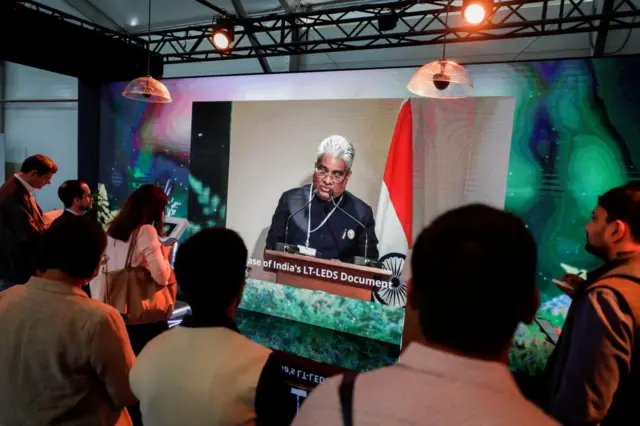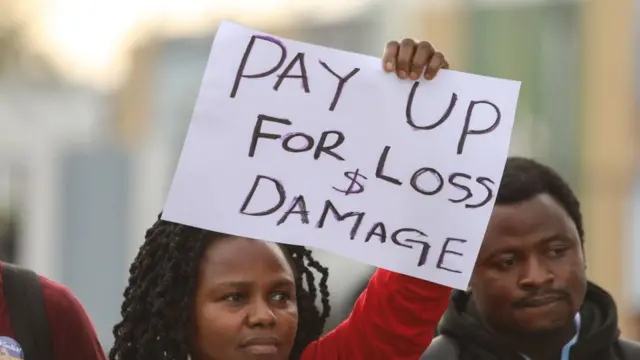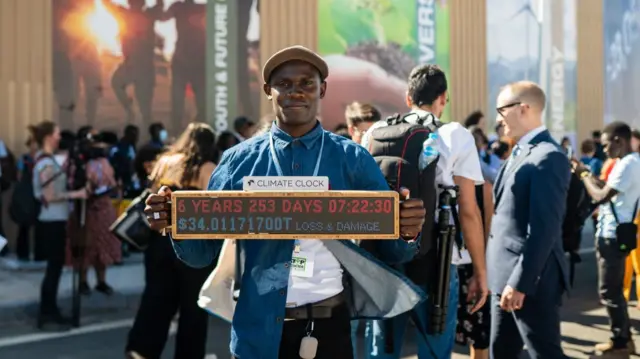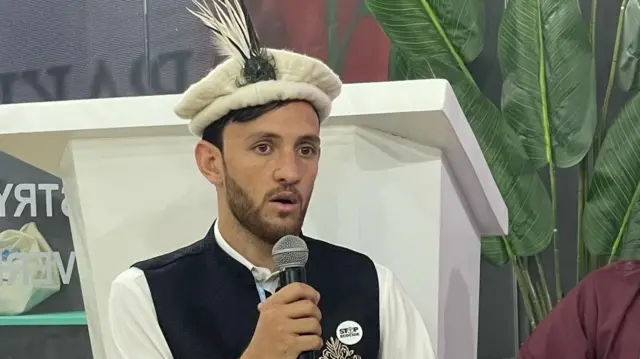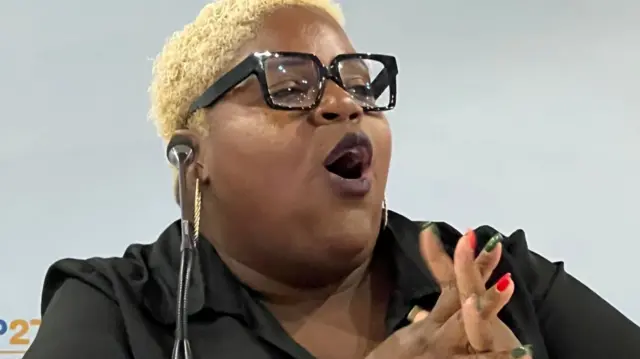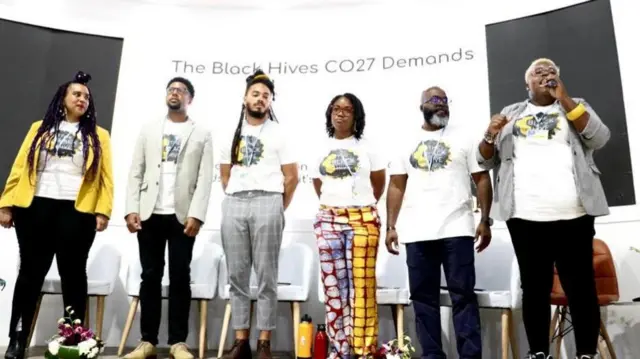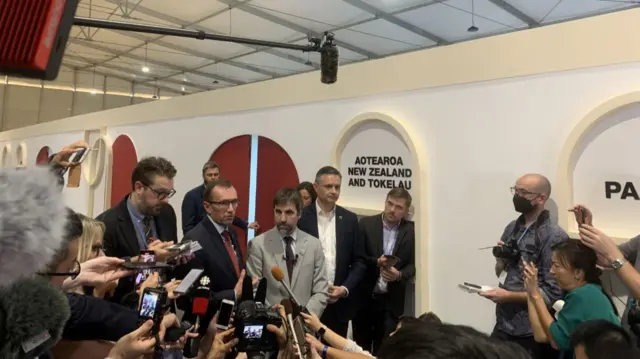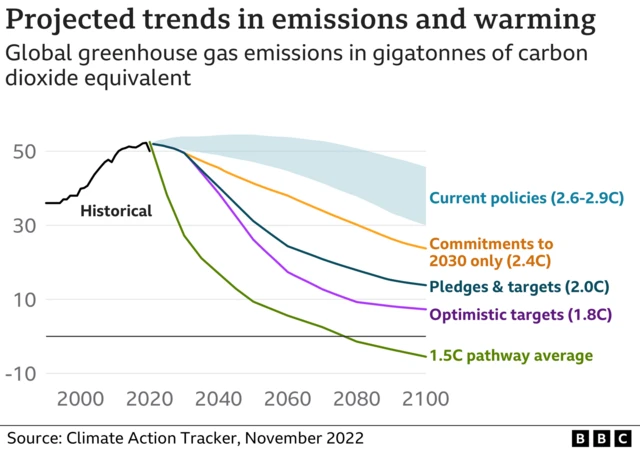Last minute intervention from UK and other nationspublished at 17:49 GMT 19 November 2022
The High Ambition Coalition (HAC) - a group of 30 ministers including the UK's COP26 President Alok Sharma - has held an emergency press conference calling on other nations to not water down promises to reduce emissions in negotiations.
The coalition's main aim is to support the 1.5C temperature goal and to push countries to reduce their emissions to net zero.
In their statement, the HAC said: "As we watch the devastating impacts of climate change this year...we come together to say that we must emerge from COP27 with a package of outcomes that keeps 1.5C alive and protects the world’s vulnerable.”
Allow X content?
This article contains content provided by X. We ask for your permission before anything is loaded, as they may be using cookies and other technologies. You may want to read X’s cookie policy, external and privacy policy, external before accepting. To view this content choose ‘accept and continue’.
Tina Stege, the Marshall Islands' climate envoy, who read out the statement on behalf of the ministers, said that the final text must reflect "that we hold fast to our commitment to 1.5C".
The coalition also wants the final text to make clear that global emissions must peak before 2025.
In the UN's latest assessment of global emissions, external, a week before COP27 started, it warned that greenhouse gases are expected to rise more than 10% by 2030.
